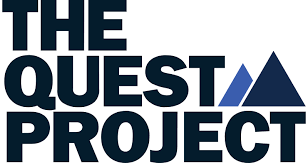FAQ
This is the #1 question we are asked. We understand that it feels like The Quest Project is overpromising--expecting change in your son in just 10 weeks might feel as if you’re setting yourself up for disappointment. Be encouraged. The Quest Project doesn’t seek to “fix” your son. Our goal is to uncover the root cause of the symptoms that first led you to seek counseling. With that, we can equip him to make better decisions resulting in improved behavior.
Read more here on the science behind The Quest Project.
Don’t take our word for it, hear straight from those directly impacted.
It’s best to call and confirm. Click here for more information to help with the process.
We’ve found that even boys who aren’t interested in therapy can find a great fit with The Quest Project--ultimately gaining the tools for self-improvement, better relationships with those around them, and higher academic ability--in a weekly format that they will actually enjoy attending. Download the free Parent Journal to explore other ways you can help your son.
Yes, Dr. Clay has developed an intensive, weekend version of The Quest Project for this very reason. Please contact us directly for more information.
The group format of The Quest Project is one of the key factors in the speed and efficacy of the program. Human nature prompts the boys to drop their guard and begin to open up during week one. By bonding together in a shared experience of vulnerability, boys make strides quickly in identifying root wounds. That’s not to say that private counseling isn’t effective and necessary. But by uniting boys of a similar age, they’re able to form a brotherhood that drives them all forward together. Learn more here.
Weekly session are 90 minutes each. Your son’s group will include boys of a similar age with the goal of making sessions fun and productive. Some weeks are more difficult than others, but each is a calculated, researched step to rooting out core issues and building a stronger emotional foundation. Learn more here.
First, that’s a normal and reasonable response. New things are difficult for all of us, regardless of age. Our experience has been that after the first week, boys already begin to see the impact of the program and are eager to come back. Here are a few quotes directly from past participants to share with your son. (Also, there’s pizza.)
“The kids that went in there with me all had problems. It was very comfortable because nobody could make fun of you. You had a problem, but they also had a problem. There wasn't any judgment.”
“I went in there, I thought they would be like, tattoos, doing drugs—that was not at all the case. One was a golfer who lives with a very rich family, one was a football player. I didn’t at all expect them to be this normal. But you could tell that they hid it. Just as much as I did.”
“I knew I was trying to work on trying to fix me and my anger and stuff like that, but that made me have a good feeling walking out of there, it was always a good time really. We always had fun, found ways to joke around, and also at the same time accomplished stuff to help us out.”
Dr. Clay wrote his books, "Generation of Men" and "Saving Our Sons" to address this very question. It’s important for your son to grow on his own--without the watchful eye of his parent or guardian.
Dr. Clay will walk you and your son through the program, every step of the way. But to truly become a man, your son will need to walk through the program on his own, without the coddling he received as a child. With parent check-ins along the way, you’ll receive regular updates, advice, and opportunities to ask questions so you can stay apprised and move forward in step with your son.
If you want to know more about the process, the theory behind it, and how to best support your son, check out "Generation of Men" and "Saving our Sons" or reach out to Dr. Clay directly.
In Dr. Clay’s own words, “As a boy, my dad was alcoholic, absent, abusive, and violent in the home. I found ways to get through this. Once I turned my life around, I realized that I wanted to help other young men navigate the same adolescence that I struggled with. So, I got the education, did the research, and created The Quest Project, through which I’ve helped over two thousand boys since 2000.”
